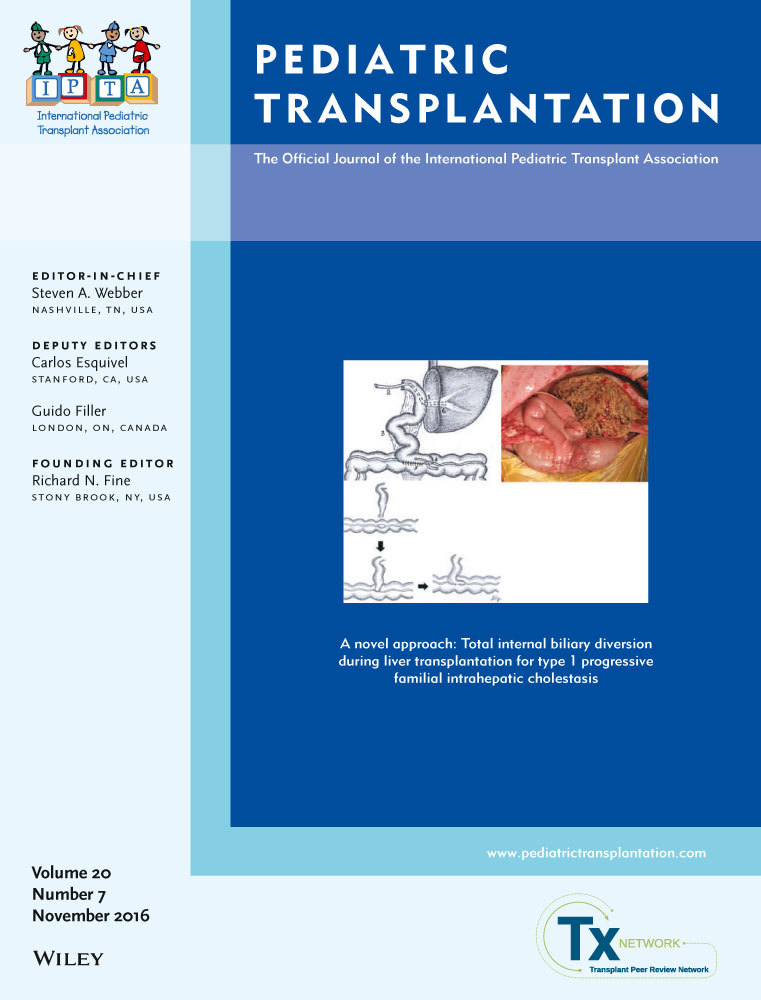Immune-mediated nephropathies in kidney transplants: recurrent or de novo diseases
Abstract
IMN contribute to ESRD in 13% children with renal transplant (txp). Recurrent or de novo IMN can cause graft dysfunction and/or failure, but the details regarding incidence, therapy, and outcome remain poorly understood. Retrospective single-center study of all pediatric kidney txp was carried out since 1998. Clinical presentation, pathology, therapy, and graft outcomes of children with recurrent or de novo IMN were reviewed. IMN was the primary etiology of ESRD in 28 of the 149 txp recipients. Eleven children had biopsy-proven post-txp IMN—six were recurrent and five had de novo. Presentation varied with changes in SCr and/or proteinuria. Initial therapy included higher doses of steroids, MMF, and tacrolimus. Outcome was excellent with only one late graft loss. Full remission was achieved in all other patients, but some had re-recurrence of the IMN. Median follow-up time was 11.8 years. IMN (recurrent or de novo) occurred in 7.4% (11 of 149) of all kidney txp performed at our center. IMN post-txp was often seen late post-txp, usually asymptomatic and noted to have relapsing pattern. Early diagnosis and prompt therapy resulted in excellent long-term outcome in children diagnosed with post-txp IMN.




